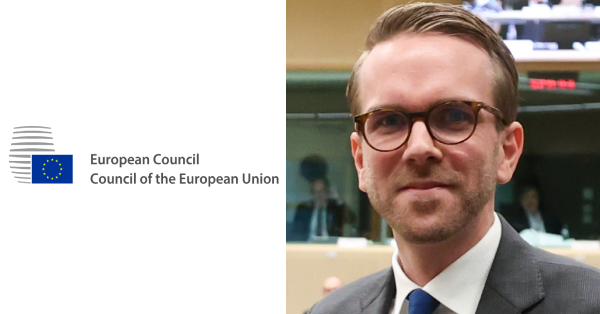More renewable and low-carbon fuels will reduce the carbon footprint of the maritime sector in the EU following today’s provisional political agreement between the Council and the European Parliament.
Today we managed to agree another part of the Fit for 55 package. The agreement will ensure a level playing field and make sure that fuel suppliers, ships and maritime operators will have sufficient time to adapt for the new conditions so the maritime sector will deliver on the climate targets.
Andreas Carlson, Swedish minister of infrastructure and housing
The main objective of the FuelEU Maritime initiative, as a key part of the EU’s Fit for 55 package, is to increase the demand for and consistent use of renewable and low-carbon fuels and reduce the greenhouse gas emissions from the maritime sector, while ensuring the smooth operation of maritime traffic and avoiding distortions in the internal market.
The proposal aims to put maritime transport on the trajectory of the EU’s climate targets for 2030 and 2050 and should play a fundamental role in delivering on the European climate law.
Main amendments to the Commission’s proposal
The text of the provisional agreement retains the core aspects of the Commission’s proposal. The co-legislators made some amendments, in particular:
- introducing time limited exceptions for the specific treatment of the outermost regions, small islands, and areas economically highly dependent on their connectivity
- introducing reduction factors for ice classed ships, as well as ships navigating in ice
- increasing the reduction targets for the greenhouse gas intensity of energy used on board by ships as from 1 January 2035 and introducing measures to encourage the use of the so-called renewable fuels of non biological origin (RFNBO)
- amending the requirements for on-shore power supply (OPS) and provisions relating to zero-emission technologies based on the underlying principle that the system should be coherent with the Alternative Fuel Infrastructure Regulation (AFIR)
- excluding fossil fuels from the certification process when it comes to the certification of fuels but also improving the provision to make the process more future proof
- amending the provisions on revenues generated from the FuelEU penalties and their allocation to projects to support decarbonisation of the maritime sector with an enhanced transparency mechanism
- further specifying the Commission’s obligations to monitor the implementation of the regulation in the relevant report and review clause.
Next steps
The provisional political agreement is now subject to formal approval by the two co-legislators. On the Council’s side, the Swedish presidency intends to submit the text to the member states’ representatives (Coreper) as soon as possible with a view to itsformal adoption by one of the upcoming Councils.
Background information
The FuelEU Maritime initiative is part of the Fit for 55 package. Presented by the European Commission on 14 July 2021, the package aims to enable the EU to reduce its net greenhouse gas emissions by at least 55% by 2030 compared to 1990 levels and to achieve climate neutrality in 2050.









































